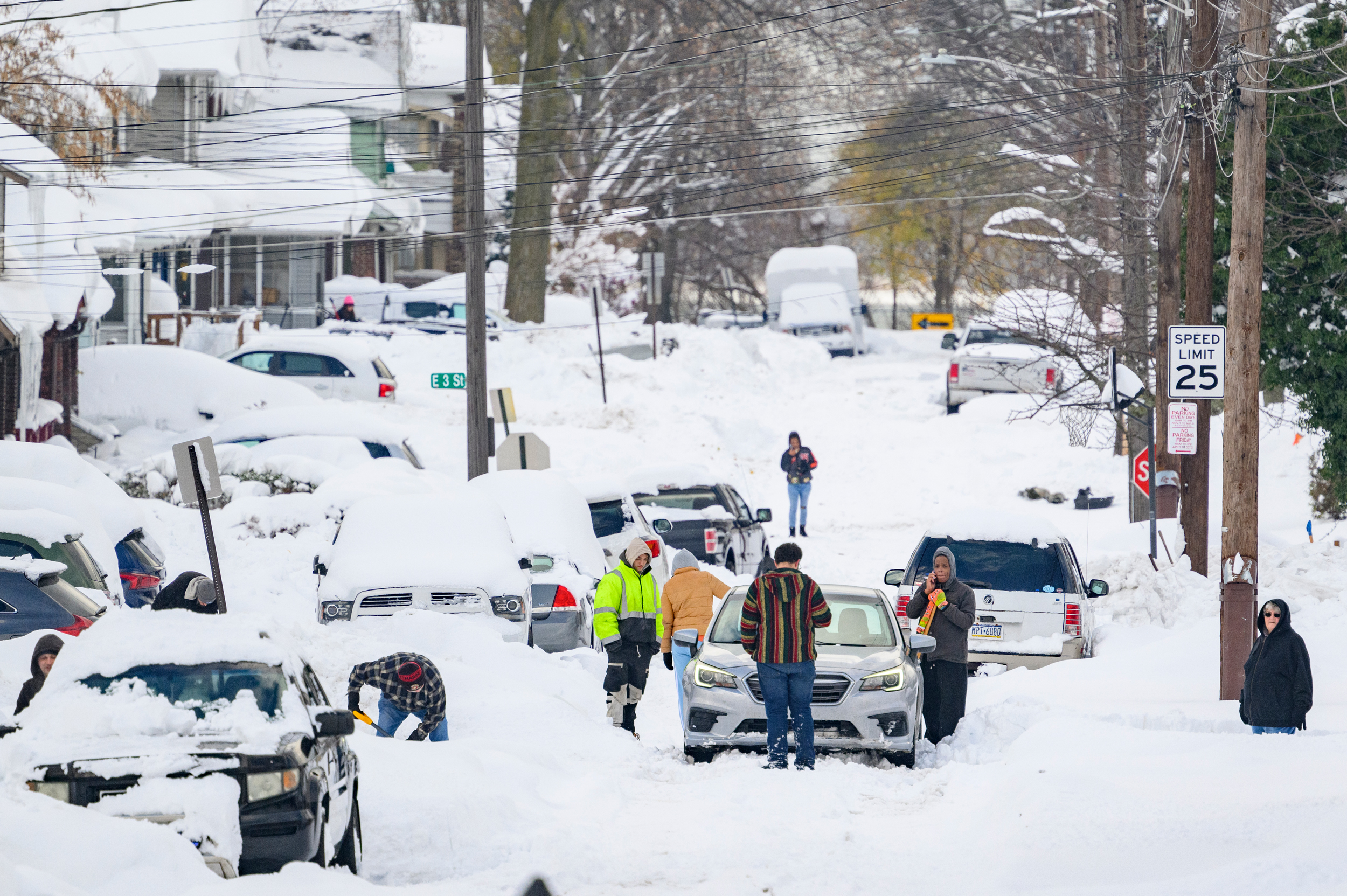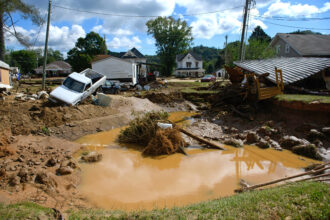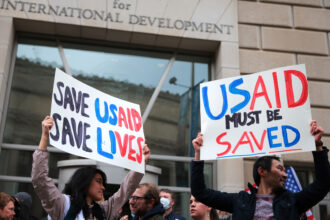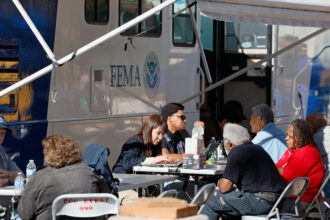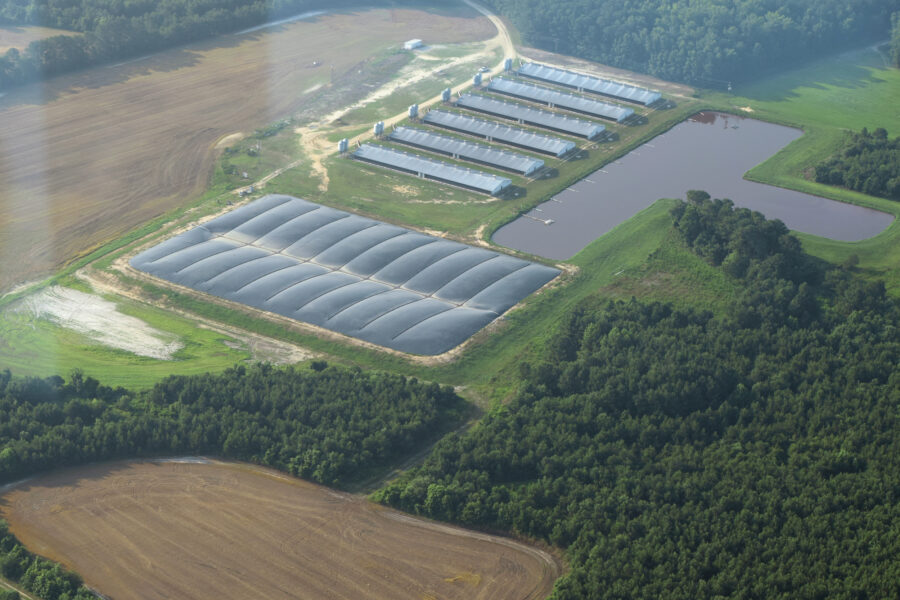PHILADELPHIA—In 2024, Pennsylvania endured a record number of the nation’s billion-dollar weather disasters, from winter storms to drought: 12. Even adjusting for inflation, that’s more than the state faced over the entire decade of the 1980s.
Last week, representatives from government, academia, medicine and activism gathered at Drexel University in Philadelphia to tackle an urgent question for Pennsylvania and neighboring states: How can we better prepare for increasingly disruptive severe weather?
“Last year was the hottest year on record. We’re seeing the most number of designated hurricanes. We’re seeing tornadoes in this area that we’ve never seen before,” said Mathy Stanislaus, vice provost and executive director at Drexel’s Environmental Collaboratory, which organized the event. “Whatever you think about the cause, it’s happening. We need to prepare.”
The event took place against a backdrop of turmoil, from last month’s devastating wildfires in California and a torrent of disaster-related misinformation to President Donald Trump’s threats against the Federal Emergency Management Agency (FEMA) and his determination to cut off funding for combating climate change.
The loss of funding from FEMA could be catastrophic in terms of planning for extreme weather. FEMA supports a number of grants specifically focused on emergency preparedness. FEMA also assists in recovery; in 2022, for example, in the wake of Hurricane Ida, FEMA sent affected Pennsylvania homeowners and renters more than $100 million.
“The federal government’s disinvestment is going to exacerbate the need for state and local governments to further step up their game,” Stanislaus said.
The White House and FEMA did not respond to a request for comment.
Stanislaus said preparedness—getting ready for an emergency well before it happens—is too often overlooked in discussions about climate change. “I view this as the leading crisis of the crisis,” he said. Emergency preparedness includes planning and training for things like early warning systems, evacuation routes and back-up energy and communication networks.
“It’s very, very hard to connect with people so that they understand the severity of the issue,” he said. The pattern of increasing and intensifying extreme weather events like heat waves, flooding and hurricanes is directly linked to fossil fuel-driven climate change. As the planet warms, the implications for public health, economic recovery and social stability are enormous.
The event at Drexel brought together a diverse group of policymakers, researchers, residents and local officials to talk about preparation and recovery in the aftermath of a disaster. “We see ourselves as a facilitator of those conversations,” Stanislaus said. The Environmental Collaboratory plans to use insights from the gathering to create a roadmap for how to better address severe weather events in the Mid-Atlantic region.
Chitra Kumar, managing director of the climate and energy program at the nonprofit Union of Concerned Scientists, was impressed by the willingness to collaborate in the room, “despite all the rhetoric we’re hearing from D.C.”
“Climate impacts are worsening and our federal politicians are going the wrong direction,” she said.
“These types of gatherings are so important because so often we work in silos,” said Dr. Elizabeth Cerceo, the director of climate health at Rowan University’s Cooper Medical School. “With the public health crises that we’re facing now, we’re shooting ourselves in the foot if we don’t make the most of all of the resources that we have.”
Much of the conversation centered on a category of severe weather that might come as a surprise to those outside the field, especially in Pennsylvania, New Jersey and Delaware: heat. Speaker after speaker emphasized the dangers posed by heat waves. Scientists at Duke University estimated in 2020 that 12,000 Americans die annually because of the effects of heat exposure.
“People tend to underestimate its impacts and push themselves until it’s too late. This can happen to anyone,” Cerceo said. Severe heat disproportionately affects those who are already vulnerable: the elderly, children and pregnant women. When heat combines with air pollution, the impacts compound. “When you have poor air quality and heat, that’s like the perfect storm,” she said.
“Climate impacts are worsening and our federal politicians are going the wrong direction.”
— Chitra Kumar, Union of Concerned Scientists
“The mortality rate during heat events goes up,” said Dr. Alan Greenglass, a retired physician who works to raise awareness about the public health repercussions of climate change. “Many people get sick and don’t die, but end up missing work, missing school, in the emergency room.”
Greenglass said educating the public about the dangers of heat, accurately predicting heat waves in advance and preparing emergency response systems can make a difference and save lives.
Maria Cabrera, a city councilwoman in Wilmington, Delaware, advocated for multilingual and multicultural communication about how to prepare for severe weather. “As a person of Hispanic descent, I feel that to be inclusive, we have to make sure that we’re reaching out to all communities in their language,” she said.
The second Trump administration’s immigration policies are likely to magnify an existing problem: Some undocumented people will not seek aid during a disaster out of fear of the government, Cabrera and others said. FEMA is part of the Department of Homeland Security, which also houses Immigration and Customs Enforcement (ICE).
“People are under the radar. I don’t think there was ever a sense of, ‘I’m comfortable with this.’ But now it’s even worse. So if there is a natural disaster, people will not reach out for help,” she said.
Cabrera applauded the university’s effort to bring key partners together to talk about planning for severe weather.
“We’re entering a climate where the leadership of this country does not believe in global warming,” she said. “Now more than ever, we have to continue the work.”
About This Story
Perhaps you noticed: This story, like all the news we publish, is free to read. That’s because Inside Climate News is a 501c3 nonprofit organization. We do not charge a subscription fee, lock our news behind a paywall, or clutter our website with ads. We make our news on climate and the environment freely available to you and anyone who wants it.
That’s not all. We also share our news for free with scores of other media organizations around the country. Many of them can’t afford to do environmental journalism of their own. We’ve built bureaus from coast to coast to report local stories, collaborate with local newsrooms and co-publish articles so that this vital work is shared as widely as possible.
Two of us launched ICN in 2007. Six years later we earned a Pulitzer Prize for National Reporting, and now we run the oldest and largest dedicated climate newsroom in the nation. We tell the story in all its complexity. We hold polluters accountable. We expose environmental injustice. We debunk misinformation. We scrutinize solutions and inspire action.
Donations from readers like you fund every aspect of what we do. If you don’t already, will you support our ongoing work, our reporting on the biggest crisis facing our planet, and help us reach even more readers in more places?
Please take a moment to make a tax-deductible donation. Every one of them makes a difference.
Thank you,


